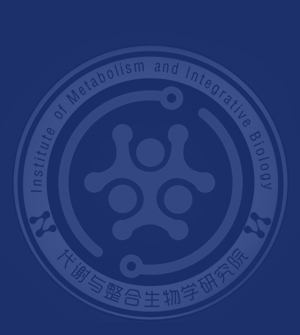


Professor
Tel: 0086-21-31246753
Email: kongxingxing@fudan.edu.cn
Office Address: Room D203, Building of Life Sciences, Fudan University
Personal Profile
2021-present, School of Life Sciences, Fudan University, Professor
2017-2021, University of California, Los Angeles, USA, Assistant Professor
2015-2017, Beth Israel Deaconess Medical Center, USA, Lecturer
2011-2015, Beth Israel Deaconess Medical Center, USA, Postdoctor
2006-2011, Chinese Academy of Medical Sciences & Peking Union Medical College, Doctor
2001-2006, Chinese Medical Sciences University, Bachelor Of medicine
Research Interests
The main researchs focus on metabolism and crosstalk of fat and muscle. Specifically, it includes how adipose tissue and skeletal muscle conduct dialogue during exercise, the molecular mechanism of exercise to improve metabolic diseases such as diabetes, the relationship and mechanism of adipose tissue inflammation and diabetes, and the role of inflammatory factor interferon regulatory factor 4(IRF4) in other tissues except adipose tissue. A total of nearly 30 SCI papers have been published, and the papers have been cited more than 1,520 times.
Honors and Awards
2015-2020 K99 Pathway to Independence Award (K99 DK106550-01), National Institute of Diabetes and Digestive and Kidney Diseases (NIDDK), Role: PI, Total: $ 643,656.
2013-2015 American Heart Association (AHA) Postdoctoral Fellowship, USA, $ 89,100.
2013 Scholarship of Keystone Symposium Adipose Tissue Biology (J5), Keystone, Colorado, USA.
2008-2009 Recipient of a scholarship of Basic Medical School, Peking Union Medical College, Beijing, China.
2007-2008 Recipient of a scholarship of Basic Medical School, Peking Union Medical College, Beijing, China.
Selected Publications
Zhu X#, Yao T#, Wang R#, Guo S, Wang X, Zhou Z, Zhang Y, Zhou X, Zhang Y, Zhuo X, Wang RT, Li ZJ*, Liu T*, Kong X*. IRF4 in Skeletal Muscle Regulates Exercise Capacity via PTG/Glycogen Pathway. Advanced Science, 2020, 7(19): 2001502.
Wang R#, Tian H#, Guo D, Tian Q, Yao T*, Kong X*. Impacts of Exercise Intervention on Various Diseases in Rats. Journal of Sport and Health Science, 2020, 9(3): 211-227.
Kong X#*, Yao T#, Zhou P, Kazak L, Tenen D, Lyubetskaya A, Tsai L, Kahn BB, Spiegelman BM, Liu T*, Rosen ED*. Brown Adipose Tissue Controls Skeletal Muscle Function via the Secretion of Myostatin. Cell Metabolism, 2018, 28(4): 631-643.
Kong X, Banks AS, Liu T, Kazak L, Rao RR, Cohen P, Wang X, Yu S, Lo JC, Tseng YH, Cypess AM, Xue R, Kleiner S, Kang S, Spiegelman BM, Rosen ED*. IRF4 is a key thermogenic transcriptional partner of PGC-1a. Cell, 2014, 158(1): 69-83.
Williams KW#*, Liu T#, Kong X#, Fakuda M#, Deng Y, Berglund ED, Deng Z, Gao Y, Liu T, Sohn JW, Jia L, Fujikawa T, Kohno D, Scott MM, Lee S, Lee CE, Sun K, Chang Y, Scherer PE, Elmquist JK. Xbp1s in Pomc neurons connects ER stress with energy balance and glucose homeostasis. Cell Metabolism, 2014, 20(3): 471-482.
Berglund ED#, Liu T#, Kong X#, Sohn JW, Vong L, Deng Z, Lee CE, Lee S, Olson DP, Scherer PE, Lowell BB*, Elmquist JK*. Melanocortin-4 receptors in preg Williams KW,anglionic parasympathetic and sympathetic neurons differentially control energy balance and glucose homeostasis. Nature Neuroscience, 2014, 17(7): 911-913.
Eguchi J#, Kong X#,Tenta M, Wang X, Kang S, Rosen ED*. Interferon regulatory factor 4 regulates obesity-induced inflammation through regulation of adipose tissue macrophage polarization. Diabetes, 2013, 62(10): 3394-3403.
Kong X, Wang R, Xue Y, Liu X, Zhang H, Chen Y, Fang F*, Chang Y*. Sirtuin 3, a new target of peroxisome proliferator-activated receptor-γ coactivator-1α, plays an important role in the suppression of reactive oxygen species. PLos One, 2010, 5(7): e11707. (至今被引用600多次)
Kong X, Wang R, Liu X, Zhu L, Shao D, Chang Y*, and Fang F*. Function of SIRT1 in Physiology. Biochemistry (Moscow), 2009, 74(7): 703-708.
Kong X#, Fan H#, Liu X, Wang R, Liang J, Gupta N, Chen Y*, Fang F*, Chang Y*. Peroxisome Proliferator-Activated Receptor Coactivator-1 Enhances Antiproliferative Activity of 5-Deoxy-5-Fluorouridine in Cancer Cells through Induction of Uridine Phosphorylase. Mol Pharmacol, 2009, 76: 854-860.



 Fudan Email
Fudan Email Fudan Ehall
Fudan Ehall